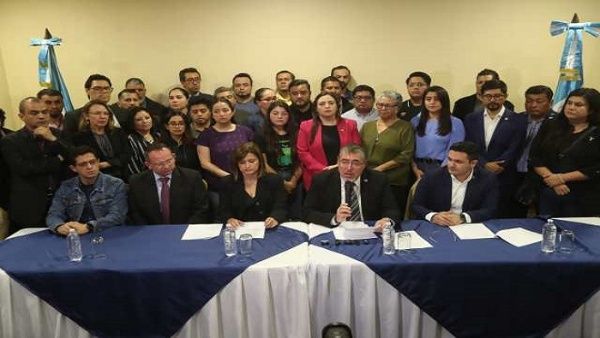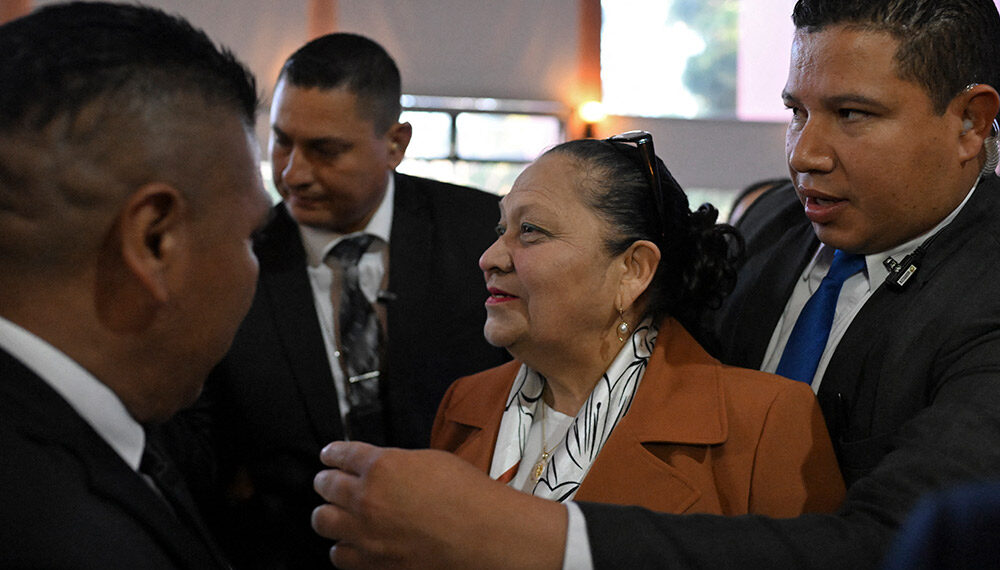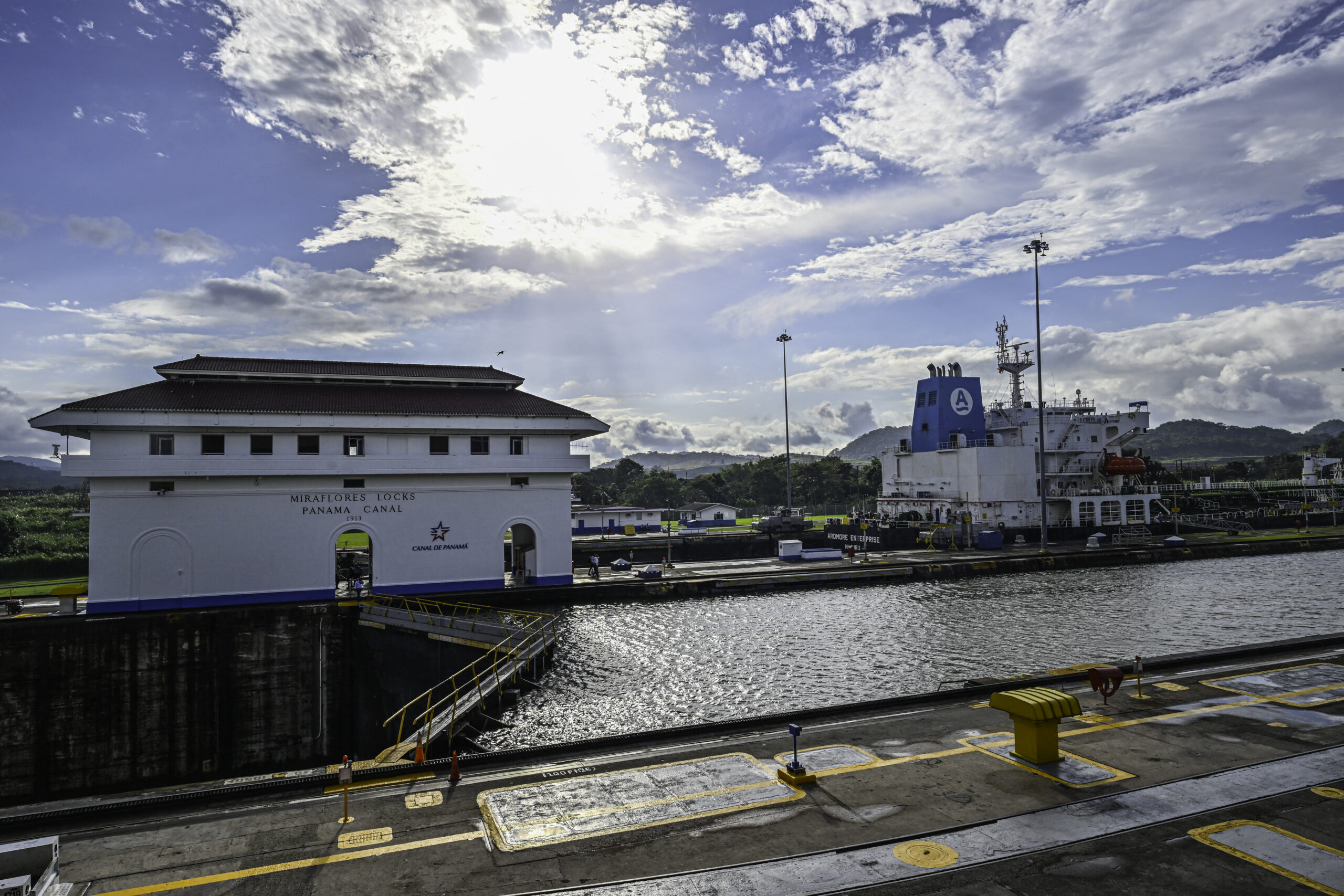Central America
Guatemalan president-elect warns of a coup d’état

December 10 |
The president-elect of Guatemala, Bernardo Arévalo, indicated “we are facing an absurd, ridiculous and perverse coup d’état”, after the Attorney General’s Office indicated that the elections held this year and in which he won with 58% of the votes, should be annulled due to alleged administrative irregularities of the Supreme Electoral Tribunal.
“The coup plotters are kicking the can down the road, the last shaky steps for a coup d’état”, said Arevalo, who added that these actions come from a group of high officials operating from the Public Prosecutor’s Office (MP).
In the same sense, the 64 year old academic said that “the coup attempt is real and has brought us to a crucial moment for the history of our country”.
This group filed an investigation to try to prevent the presidential inauguration, on January 14, 2024, he argued.
“The coup group that occupies the MP has made very clear the intentions of the illegal actions they have carried out in the last year, they began with the repression to restrict the freedom of expression,” said the president.
According to the Guatemalan politician, these actions of the MP are part of a larger plan that the investigating entity has been greasing. “They continued with the persecution of the social and political organization, today they are exerting pressure and extortion against any official who opposes to follow their illegal instructions”, he denounced.
Among the accusations made by the MP are the alleged irregular affiliation to found the political party Movimiento Semilla, since the Prosecutor’s Office has a confirmatory statement from a former worker of the Supreme Electoral Tribunal (TSE), who confessed to the alleged irregularities.
“We do not know what it is, we are simply listening to affirmations of the MP. I believe that their credibility does not exist anywhere without them demonstrating the things they are doing, we do not have access to the folder”, Arévalo emphasized.
Another of the specific accusations against the political group is an alert activated by the Intendencia de Verificación Especial (IVE) for an alleged suspicious transaction of 44,000 dollars, which in the opinion of the authorities could be a case of possible money laundering.
“The 44 thousand dollars that are reported are even known in a loan contract that we subscribed with a person who is affiliated to the party to be able to pay the fine imposed on us by the TSE, it is perfectly documented and registered”, he explained.
Lawyers of the group said they have a clear legal route, since they will have to respond to the new requests of pre-trial presented against the president elect and two deputies of the party.
Central America
Guatemala’s Attorney General Fails in Bid for Top Court Seat Amid Corruption Allegations

The Attorney General of Guatemala, Consuelo Porras, failed on Tuesday in her bid to join the country’s highest constitutional court, a position that would have granted her immunity from corruption allegations for which she has been sanctioned by the United States and the European Union.
Porras, whose term as attorney general ends in May, did not receive a single vote in the final round of voting to become a magistrate of the Corte de Constitucionalidad, whose rulings are final and cannot be appealed.
The Supreme Court reelected Dina Ochoa and Claudia Paniagua as its representatives to the Constitutional Court.
Ochoa is considered close to former presidents Jimmy Morales (2016–2020) and Alejandro Giammattei (2020–2024), both accused of corruption. Paniagua, like Porras, has been sanctioned by the United States.
Washington and the European Union have labeled Porras as “corrupt” and “undemocratic,” accusing her of attempting to block the inauguration of Social Democratic President Bernardo Arévalo two years ago.
In addition, the 72-year-old attorney general—who is seeking a third term—has been accused of forcing anti-corruption officials, journalists, and social leaders into exile. She denies the allegations and claims they are part of a political persecution campaign.
Porras’ chances of remaining in office, a position she has held since 2018, are considered slim, as President Arévalo is responsible for appointing the next attorney general.
Central America
Panama Canal Monitoring Trade as Middle East Conflict Disrupts Shipping

The Panama Canal Authority (ACP) said Monday it is closely monitoring global maritime trade developments following the conflict triggered by joint U.S. and Israeli strikes against Iran.
However, the ACP described it as “premature” to predict potential consequences for vessel traffic through the interoceanic waterway, which handles roughly 5% of global maritime trade.
“The Panama Canal continuously monitors the evolution of international maritime trade and the dynamics that may influence its flows,” the authority said in a statement. The canal’s main users are the United States and China, connecting primarily the U.S. East Coast with Asia, including South Korea and Japan.
The ACP emphasized that the canal “continues to operate safely, efficiently, and reliably,” providing uninterrupted service to the global maritime community.
Global Shipping Disruptions
The U.S.-Israeli military operation against Iran and Tehran’s retaliatory actions have disrupted global maritime traffic, particularly oil tanker routes.
Shipping giants Maersk and CMA CGM have suspended transits through the Strait of Hormuz as well as crossings via the Suez Canal, the key route linking the Mediterranean Sea and the Red Sea.
As a result, cargo vessels are now rerouting around Africa to reach Europe from the Middle East and Asia — a detour that adds several thousand kilometers and several days to voyages.
Central America
Washington Imposes Visa Ban on La Modelo Director Amid Crackdown in Nicaragua

The United States government announced Wednesday that it has imposed visa restrictions on Roberto Clemente Guevara Gómez, director of Nicaragua’s largest prison, La Modelo, for his involvement in actions that violate human rights.
In a statement, U.S. Secretary of State Marco Rubio said the measure is intended to promote accountability for abuses committed under what he described as the “Murillo-Ortega dictatorship” against political prisoners.
Rubio specified that Guevara Gómez was designated for participating in “a gross violation of the human rights of a political prisoner.” The sanction was issued under the 2024 Department of State, Foreign Operations, and Related Programs Appropriations Act, which bars the sanctioned individual — and potentially immediate family members — from entering the United States.
“United States demands the immediate and unconditional release of all political prisoners unjustly detained in Nicaragua,” the statement added.
Ongoing tensions between Washington and Managua
Washington rejected Nicaragua’s November 2021 elections, in which President Daniel Ortega and his wife, now co-president Rosario Murillo, were reelected while seven potential challengers were in prison.
Relations between the two countries remain tense amid expanding U.S. sanctions and increasing diplomatic pressure on the Nicaraguan government.
On January 10, marking Ortega’s 19 years in power, Nicaragua released “dozens of detainees,” including political prisoners. The move came one day after the U.S. Embassy in Managua stated that “more than 60 people” remain “unjustly detained or disappeared” in the Central American nation.
U.S. officials have continued to push for the “unconditional release” of political prisoners rather than selective or temporary releases.
Ortega, 80, governs alongside Murillo with consolidated authority, having strengthened executive power through constitutional reforms and security measures, while the opposition has been weakened by imprisonment, exile, and the revocation of citizenship and property rights.
-

 International3 days ago
International3 days agoIran Reports 201 Dead, 747 Injured After U.S. and Israeli Strikes
-

 International3 days ago
International3 days agoPope Leo XIV Urges End to ‘Spiral of Violence’ in Middle East
-

 International4 days ago
International4 days agoSecurity Council to Hold Emergency Meeting on Middle East Crisis
-

 International1 day ago
International1 day agoBrazil’s Supreme Court Rejects Bolsonaro’s Bid for House Arrest
-

 International4 days ago
International4 days agoTrump Floats “Friendly Takeover” of Cuba Amid Rising Tensions
-

 Sin categoría4 days ago
Sin categoría4 days agoTrump: ‘We Think It’s True’ Amid Claims Iran’s Supreme Leader Was Killed
-

 International4 days ago
International4 days agoArgentina’s Senate Reviews Milei-Backed Labor Overhaul
-

 International1 day ago
International1 day agoAnti-ICE Billboard Campaign Targets Immigration Spending in 31 U.S. Cities
-

 International1 day ago
International1 day agoTrump Warns of ‘Major Wave’ of Attacks as Iran Conflict Escalates
-

 International1 day ago
International1 day agoMexico Calls for Immediate Probe After National Dies in ICE Custody
-

 International14 hours ago
International14 hours agoSpain’s Prime Minister to Address Nation Amid Trump’s Trade Threats
-

 International14 hours ago
International14 hours agoNew York Announces First 2,000 Seats in Universal 2-K Program
-

 Central America1 day ago
Central America1 day agoPanama Canal Monitoring Trade as Middle East Conflict Disrupts Shipping
-

 International1 day ago
International1 day agoBolivia Orders Three Investigations Into Deadly Military Plane Crash
-

 Central America14 hours ago
Central America14 hours agoGuatemala’s Attorney General Fails in Bid for Top Court Seat Amid Corruption Allegations
-

 International14 hours ago
International14 hours agoWarner Bros. Developing First ‘Game of Thrones’ Movie With ‘Andor’ Writer








































































































